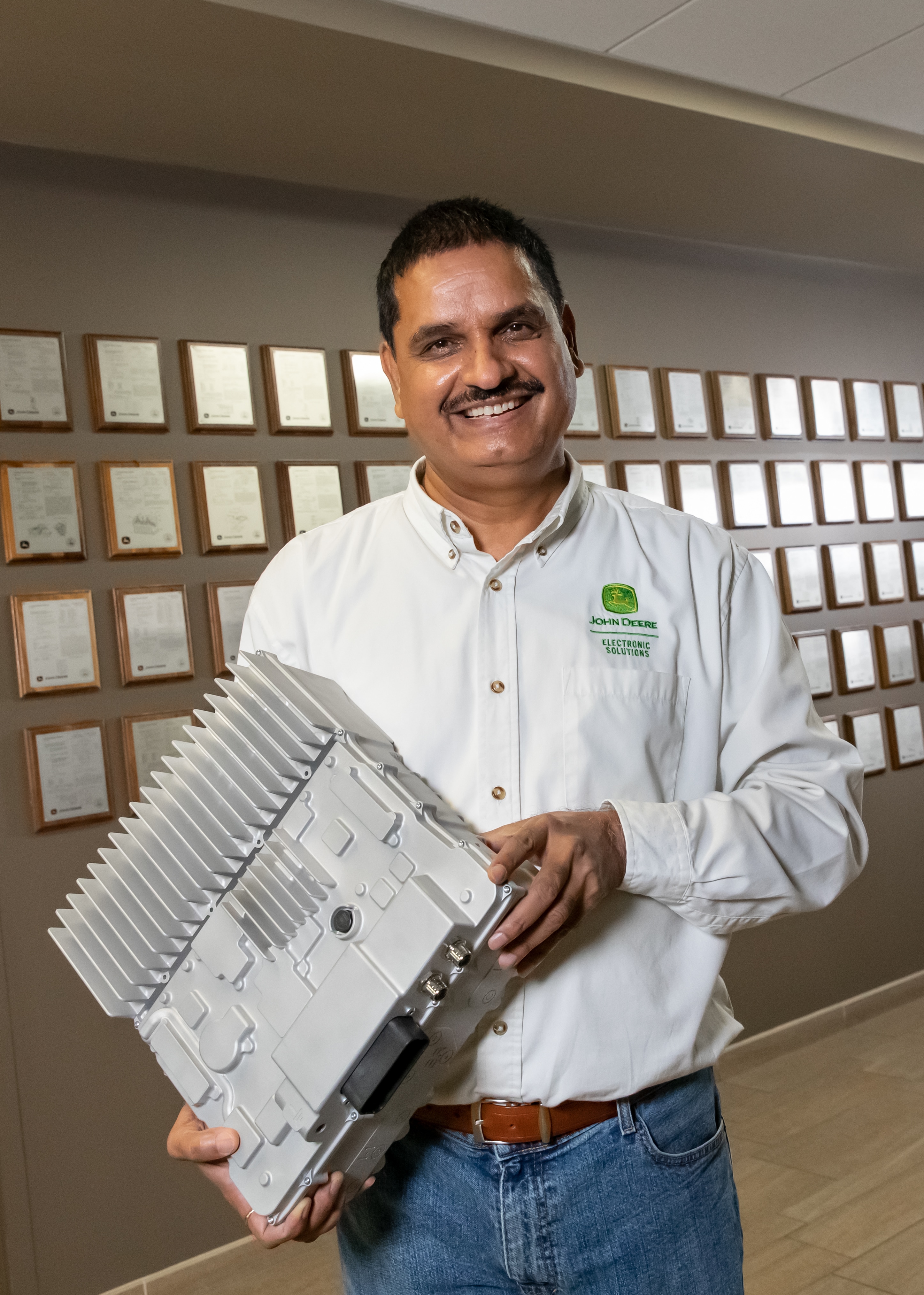BRIJ SINGH EARNS “RARE AWARD” IN ENGINEERING WORLD
Institute of Electrical and Electronics Engineers (IEEE) names Deere employee a Fellow for extraordinary accomplishments
It's often said in the world of technology and innovation that the efforts of today may not be realized for years to come. Brij Singh of John Deere Intelligent Solutions Group Fargo also knows the recognition for that work can trail even farther behind.

Singh, manager for external relationships and a John Deere Fellow, recently was honored with the prestigious Institute of Electrical and Electronics Engineers (IEEE) Fellow award. The award recognized two of Singh's most significant projects, including the power quality converters and novel indirect current control technique (1996-1998) and the development of products and technologies for John Deere electrification programs (2007-2012).
"In 1996, I never thought that what I was working on would become an ingredient for the IEEE Fellow nomination," Singh said. "These rewards and recognitions do come at the right time and often in a pleasantly surprising manner."
An IEEE grade of Fellow is exclusive. Very exclusive. As it stands today, the Fellow distinction, according to IEEE's web site, "is conferred by the organization's board of directors upon a person with an extraordinary record of accomplishments in any of the IEEE fields of interest." The total number of Fellows selected in any one year does not exceed one-tenth of 1 percent (0.01) of the total voting IEEE membership.
Singh said in academia the IEEE Fellow is considered an extremely valuable and sought-after award "that every faculty member dreams of and aspires to earn." However, he said, within industry earning the honor is rare.
The IEEE Fellow award recognizes senior members who have made two distinct contributions to support advancement of education, new product and technology introduction that benefits customers, energy-efficiency, and carbon and greenhouse gas (GHG) footprint reductions. Additionally, the nominee must have contributed importantly to the advancement or application of engineering, science, and technology in bringing significant value to the society. The process of review is spread over 10 months and includes verification of the nominee's credentials by more than a dozen IEEE Fellows.
Singh’s early work on the seamless integration of multiple energy sources (wind, solar, battery) that interface on the same electrical grid helped create a smooth power transfer in both directions along the grid without impacting quality. Many university researchers have proven that indirect current control technique through peer reviewed research articles more than 4,500 times. Singh added that the citations demonstrate the educational impact of the control techniques.
Within John Deere, Singh designed, developed, and deployed gate driver (power amplifier) technology in the silicon IGBT inverters used in the electrification of the company's 644K and 944K diesel-electric loaders. He also secured multi-million-dollar research funding from the U.S. Department of Energy to help advance the company's capability and competency with power electronics.
"This honor wouldn't be possible without the culture of John Deere," Singh said. "The enterprise gave me all possible opportunities to contribute in the successes of our products and without these opportunities, flexibilities, and freedom I wouldn't have received these honors – both the John Deere and IEEE Fellows. I think a manager's trust and empowerment to the employees makes all the difference and it's what makes John Deere the perfect place to work."
